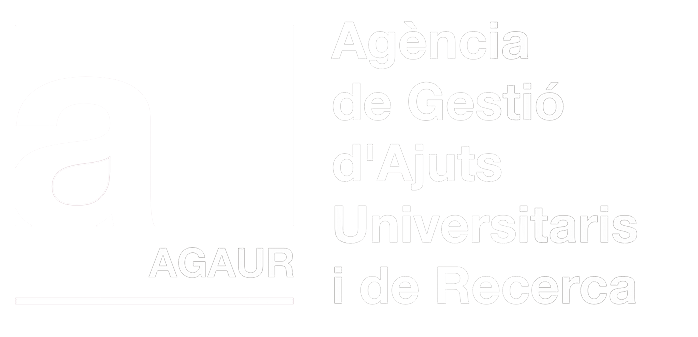Projects
Philosophy of Social Cognition
1 Sep 2022 / 31 Aug 2026 |Perspectival Thoughts and Facts: New Issues
1 Jul 2017 / 30 Jun 2020 |Awareness, self-awareness and unawareness: Exploring the perception-cognition-action continuum
1 Jan 2019 / 30 Sep 2022 |Experience, Belief and Mental Action
1 Jan 2012 / 31 Dec 2015 |DIAPHORA
1 Jan 2016 / 31 Dec 2019 |The Complexity of Perception: a Multidimensional Approach (COMPLECEP)
1 Jan 2015 / 31 Dec 2018 |List of Publications
Memory and Implicit Bias
Forthcoming in A. Sant’Anna and C. Craver (Eds.). The Oxford Handbook of Philosophy of Memory. Oxford: OUP.
“Seeing Wrongness”
Journal of Moral Philosophy, 22 (3–4): 314–335. DOI: 10.1163/17455243-20244289
“Responsibility for implicitly biased behaviour: A habit-based approach”
Journal of Social Philosophy, 53: 239-254. DOI: 10.1111/JOSP.12442
“Una explicación aretaica del impacto de los sesgos implícitos sobre la justificación de las creencias”.
In David Pérez Chico and Modesto Gómez (Eds.). Ernesto Sosa: Conocimiento y Virtud. With Miguel Ángel Fernández, pp. 187–210. Zaragoza: PUZ.
“Implicit Bias and the Fragmented Mind”
In Dirk Kindermann, Cristina Borgoni and Andrea Onofri (Eds.), The Fragmented Mind, pp. 303–324. Oxford: OUP.
"La experiencia visual: rica pero impenetrable"
In Álvaro Peláez and Ignacio Cervieri (Eds.) Contenido y Fenomenología de la Percepción: Aproximaciones Filosóficas. Ciudad de México: Gedisa-UNAM, pp. 79–109.
"Molyneux's question and perceptual judgments"
In Gabriele Ferretti and Brian Blenney (Eds.). Molyneux's Question. Oxford: Routledge, pp. 266–283.
"Visual categorization"
In Brian Glenney and José Filipe Pereira da Silva (Eds.) The Senses and the History of Philosophy. Oxford: Routledge, pp. 292–307.
“Are visuomotor representations cognitively penetrable? Biasing action-guiding vision”.
Synthese, 198 (Suppl. 17): S4163–S4181.
"Accessibilism, implicit bias, and epistemic justification"
Synthese 198 (7): 1529–1547.
"Implicit bias: from social structure to representational format"
Theoria. An Internation Journal for Theory, History and Foundations of Science 33(1): 41–60.
"At the border between perception and cognition: An interview"
Niin & Näin, Filosofinen Aikakauslehti, 3, pp. 60–67
"Visual experience: rich but impenetrable"
Synthese, 195 (8): 3389–3406. DOI 10.1007/s11229-015-0889-8
"Opacity, know-how states, and their content"
Disputatio, 7(40): 61–83
"Social vision: breaking a philosophical impasse?"
Review of Philosophy and Psychology, 6(4): 611-615
DOI: 10.1007/s13164-015-0257-0
"Cognitive Impenetrability and the Content of Early Vision"
Philosophical Psychology, 27(5): 621–642.
“Causal Efficacy, Content and Levels of Explanation”
Logique et Analyse, 135-136, pp. 297-318.
“Why There Still Has to Be a Theory of Consciousness”
Consciousness and Cognition, 2 (1), pp. 28-47.
“Doing without Representing?”
Synthese, 101, pp, 401-431.
“Ruritania and Ecology: Reply to Ned Block”
Philosophical Issues, 6, pp. 188-195.
“Ecological Content ”
Pragmatics and Cognition, 5 (2), pp. 257-285.
“Naturalism and Causal Explanation”
Communication and Cognition, 32 (3/4), pp. 243-258.
“Twin Pleas: Probing Content and Compositionality”
Philosophy and Phenomenological Research, 57, (4), pp 871-889.
“Pulp Naturalism”
Il Cannocchiale, Rivista di Studi Filosofici, 2 [special issue on Philosophy of Mind and Cognitive Science], pp. 185-195.
“Meaning and Other Non-Biological Categories”
Philosophical Papers, 27 (2), pp. 129-150.
“The Implicit Conception of Implicit Conceptions. Reply to Christopher Peacocke”
Philosophical Issues, 9, pp. 115-120.
“Meaning, Dispositions, and Normativity”
Minds and Machines, 9 (3), pp. 399-413.
“Extruding Intentionality from the Metaphysical Flux”
Journal of Experimental and Theoretical AI, 11, 1999, pp. 501-518.
“Sensorimotor Chauvinism?” Commentary on O’Reagan, J. Kevin and Noë, Alva, “A Sensorimotor account of vision and Visual Consciousness”
Behavioral and Brain Sciences, 24 (5), pp. 979-980.
“Normativity: The Hard Problem”
Kognitywistyka i media w edukacji (Cognitive Science and Media in Education), 1 (1), pp. 67-86. Reprinted in Theoria et Historia Scientiarum, vol. IX, 2003 / 2.
“Semantic Responsibility”
Philosophical Explorations, 1, pp. 39-58.
“Modularity, Relativism, and Neural Constructivism”
Cognitive Science Quarterly, vol. 2 (1), pp. 93-106.
“Mindful Belief”
Theoria. A Swedish Journal of Philosophy, 68 (3), pp. 224-249.
“Perceptual Experience and Its Contents”
The Journal of Mind and Behavior, 23, (24), pp. 375-392.
“Free Belief”
Phenomenology and the Cognitive Sciences, 2 (2), pp. 327-336.
“Nonconceptual Content”
Philosophy Compass 2/3, pp. 445–460
“How Do We Know How?”
Philosophical Explorations, 11 (1), pp. 39-52.
“State versus Content: The Unfair Trial of Perceptual Nonconceptualism”
Erkenntnis, 69 (3), pp. 351-361.
“Is there an ‘ought’ in belief?”
Teorema, 32(3), pp. 75-90.
“Positing a space mirror mechanism: intentional understanding without action?”
Journal of Consciousness Studies, 20 (5-6), pp. 121-193.
“Michael Dummett (1925-2011)”
Teorema, 31 (1), pp. 163-169.
“What we do when we judge”
dialectica, 65 (3), pp. 345-367.
“Compositionality, Iconicity and Perceptual Nonconceptualism”
Philosophical Psychology, 24 (2), pp. 177-193.
“The Animal Concepts Debate: A Metaphilosophical Take”
Teorema, 29 (2), pp. 11-24.
“Does seeing red require thinking about red things?”
Think, 8 (22), pp. 29-39.



